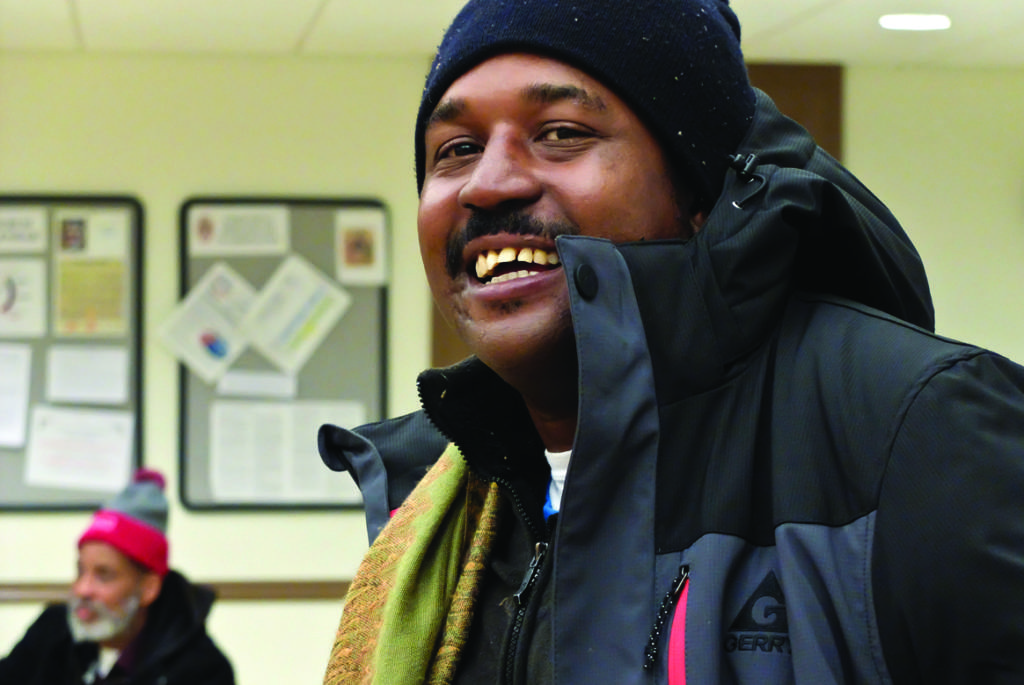I knew my way around Louisiana State Penitentiary. That was before Katrina and before I got out and got sent to D.C.
After getting sentenced I got caught selling drugs in D.C., and the feds sentenced me to 70 months — almost 6 years. That’s when I realized that being in District court is nothing to play with.
Why I say that is because it is so quiet you can hear a rat piss on cotton. Everyone in there be shakin.’ One thing you know, you not goin’ home and you gonna get some time, unless you’re a rat.
I was in a holding cell waiting to get sentenced with some guy from Virginia. A few of my co-defendants were in the cell across. One called to me through the bars.
He said, “That guy you in the cell with — he a rat.” He had on a black and white stripe uniform, which is what the rats wear. I was in a pumpkin suit — an orange jumpsuit.
I get escorted to the jail in a van and I was thinkin’ about the 70 months. I was sayin’ to myself, at least I’m not in the jail hospital or graveyard. They had all that there at the D.C. jail.
Six months after being sentenced, I heard them come by the cell at 2:30 in the morning. They said, “Pack up your things.” And they told me I would be sent to the federal system.
After travelin’ in a bus with everyone in shackles and handcuffs, they told me I was going to Fairton, a federal correctional institution in New Jersey.
They told me what dormitory I was going to. It was really funny to me, because guys there look different and they do things differently.
In the federal prison, you run with people based on where they are from — D.C. in my case. In state prison, it’s every man for himself. In federal prison, you run with your state. You can mingle, but you gotta check to see who you’re in there with — you can find out on the computer who is a rat. You don’t deal with rats.
There are three men in a cell. It was cool. I got to know my roommates. We would talk all night. We got a pool table and a TV on the wall. They lock the cell at 9:30 p.m.
We had guys who made nachos, pizza,and pigs in a blanket. They made the dough with water and bread and rolled it out with a broomstick or something. They took candy bars and cookies and broke them down with water and bread and made cakes. Apple pie too.
One day I went into the kitchen, and they always had food passed under the table. That’s when I found out the Gambino family was there at their own table. They mostly have school degrees. They got big-time — life sentences, some of them.
After a while, I got assigned to the kitchen to work. That’s when I got more familiar with the Gambinos. ‘Cause they paid me for getting things outta the kitchen for them, like raw eggs, flour, salt, pepper, hot stuff and garlic. ‘Cause they like to make their own food.
The guards didn’t mess with them. So they got away with stuff. If I got caught, I got away with nothin.’
I was good at makin’ hooch, homemade liquor, like beer — homemade brew — also called jungle juice. You take pineapple, apricot, all kinds of fruit, and you strain it with a hairnet. You know how popular Obama’s shirt was when it first came out. That’s how popular prison hooch was.
You might sell it for two books of stamps or five cans of tuna. It was store items because you don’t get cash unless someone wired it to your account.
There’s always a hustle. Gamblin’. There’s football, say D.C. prisoners against St. Louis inmates. They might get into it — who won, who cheated, or who got knocked and then there be a riot. I was not gonna let my guys get beat up. Texas had the biggest group of guys.
We used a mop bucket and take two wires from a radio or anything and put it in the socket — it’s like you pop a socket with pencil lead. Then it goes pop and we might make a bonfire from tissue paper. That’s how we warm food up. The guard would come ‘cause he smelled food cookin’ — he might write it up or he might say “bring me some.” For grilled cheese, we would take bread and cheese, put it in a bag, and run the iron over the bag.
I completed my sentence and am now recovering from a serious accident. I live in low-income housing with the help of a home health care aide.






